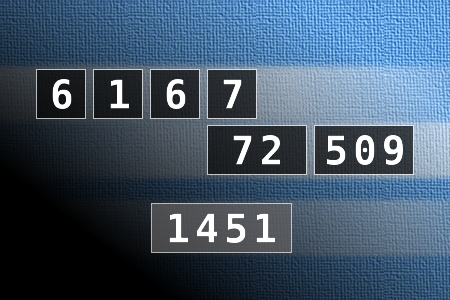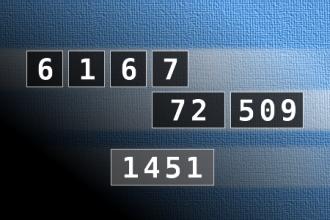Calculate the number 1451
NUMBERMANIA: Calculate the number 1451 using numbers [6, 1, 6, 7, 72, 509] and basic arithmetic operations (+, -, *, /). Each of the numbers can be used only once.Correct answers: 16
The first user who solved this task is Djordje Timotijevic.
#brainteasers #math #numbermania

Hunter Shot By Fox
The following is supposedly a true story. To be included, besides being true, the story is most likely strange, weird, surprising, or funny.
Hunter Shot to Death By a Fox, Belgrade, Associated Press
A fox shot and killed a 38-year-old hunter in central Yugoslavia, the official Yugoslav news agency Tanjug reported yesterday.
Salih Hajdur, a farmer from the village of Gornje Hrasno in the Republic of Bosnia-Hercegovina, went to a nearby forest Sunday to shoot a fox, Tanjug said.
Hajdur wounded a fox in the leg, the agency said, but to spare the skin he did not fire again. Instead, he hit the animal with his refle butt. The struggling animal triggered a shot that hit Hajdur in the chest and killed him instantly, Tanjug said. The fox died later, Tanjug added.
Hunter Shot to Death By a Fox, Belgrade, Associated Press
A fox shot and killed a 38-year-old hunter in central Yugoslavia, the official Yugoslav news agency Tanjug reported yesterday.
Salih Hajdur, a farmer from the village of Gornje Hrasno in the Republic of Bosnia-Hercegovina, went to a nearby forest Sunday to shoot a fox, Tanjug said.
Hajdur wounded a fox in the leg, the agency said, but to spare the skin he did not fire again. Instead, he hit the animal with his refle butt. The struggling animal triggered a shot that hit Hajdur in the chest and killed him instantly, Tanjug said. The fox died later, Tanjug added.

